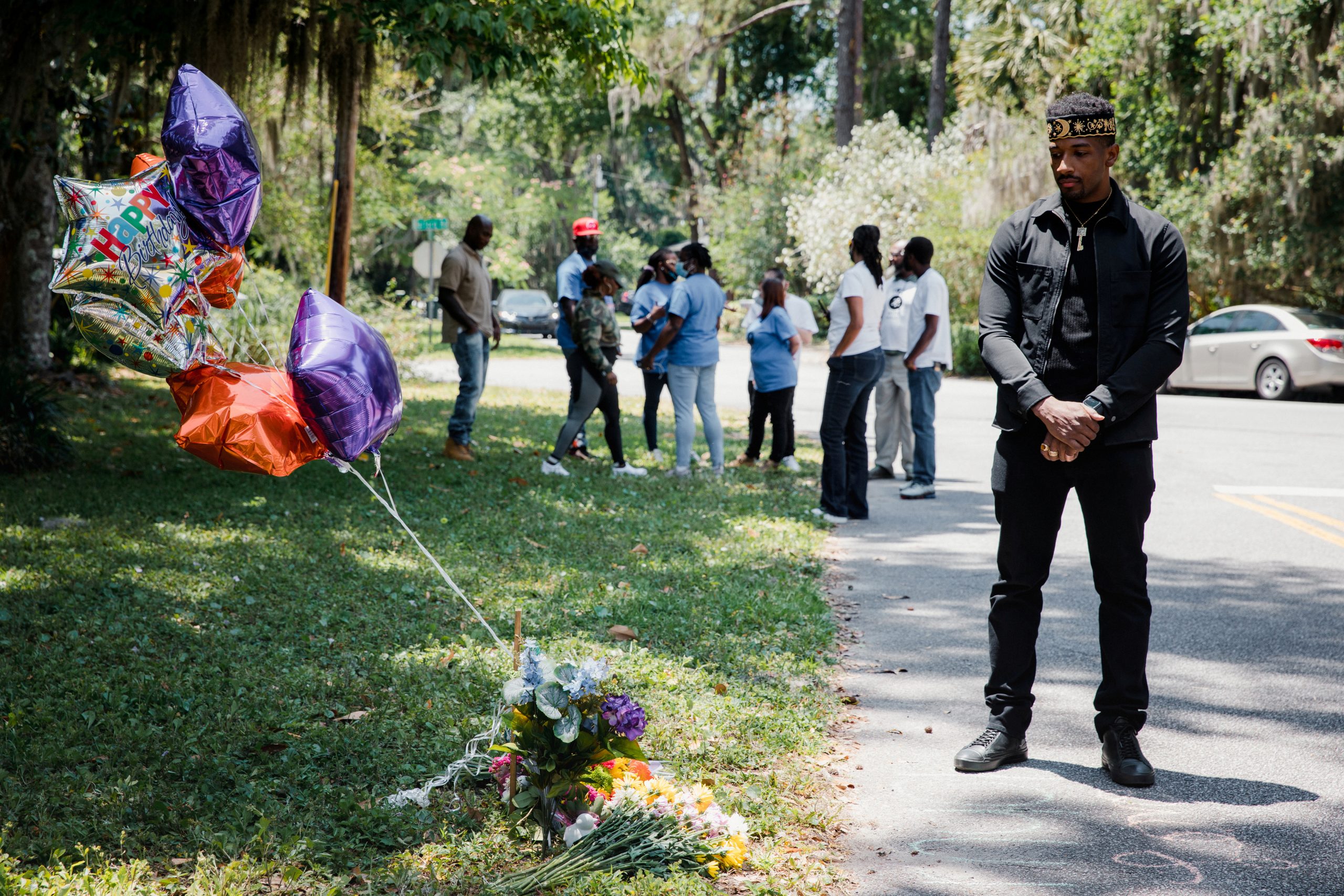Three white men arrested last month in the slaying of a Black man who was gunned down as he jogged through a suburban neighborhood in Georgia four months ago were indicted on Wednesday on murder and other charges.
Video footage showing the killing of Ahmaud Arbery, 25, in the coastal Georgia town of Brunswick emerged on social media and went viral in May, some 10 weeks after his death, stoking public outrage at the lack of arrests at that time.
Days later, the two men seen confronting Arbery in the video, former police officer George McMichael, 64, and his son, Travis McMichael, 34, were taken into custody and charged with murder. William “Roddie” Bryan Jr., 50, who videotaped the Feb. 23 shooting, was later arrested and also charged with murder.
On Wednesday, a grand jury returned a nine-count indictment against all three men, charging each with malice murder, felony murder, aggravated assault and false imprisonment, the indictment shows. The three remain jailed without bond.
The McMichaels told police they suspected Arbery was involved in a string of neighborhood burglaries when they spotted him running in the street and said they chased him down in their pickup truck to make a citizen’s arrest.
Bryan’s attorney Kevin Gough, issued a statement on Wednesday insisting his client was merely “a witness to the tragic shooting death” and had fully cooperated with investigators from the start.
The indictment supersedes charging documents already filed against the three men and spares prosecutors the legal hurdle of having to prove to a judge they have sufficient evidence to proceed to trial.
Lee Merritt, an attorney representing Arbery’s family, said the charges carry a possible death sentence, but prosecutors haven’t decided whether to seek capital punishment.
The U.S. Justice Department is investigating whether grounds exist for federal hate-crimes charges.
A bill newly passed by the Georgia legislature allowing for stiffer sentences when a victim is shown to have been targeted because of race is not retroactive and cannot be applied in the Arbery case, Merritt said.
(Reporting by Rich McKay in Atlanta; Writing and additional reporting by Steve Gorman in Los Angeles; Editing by Aurora Ellis)

























 Continue with Google
Continue with Google